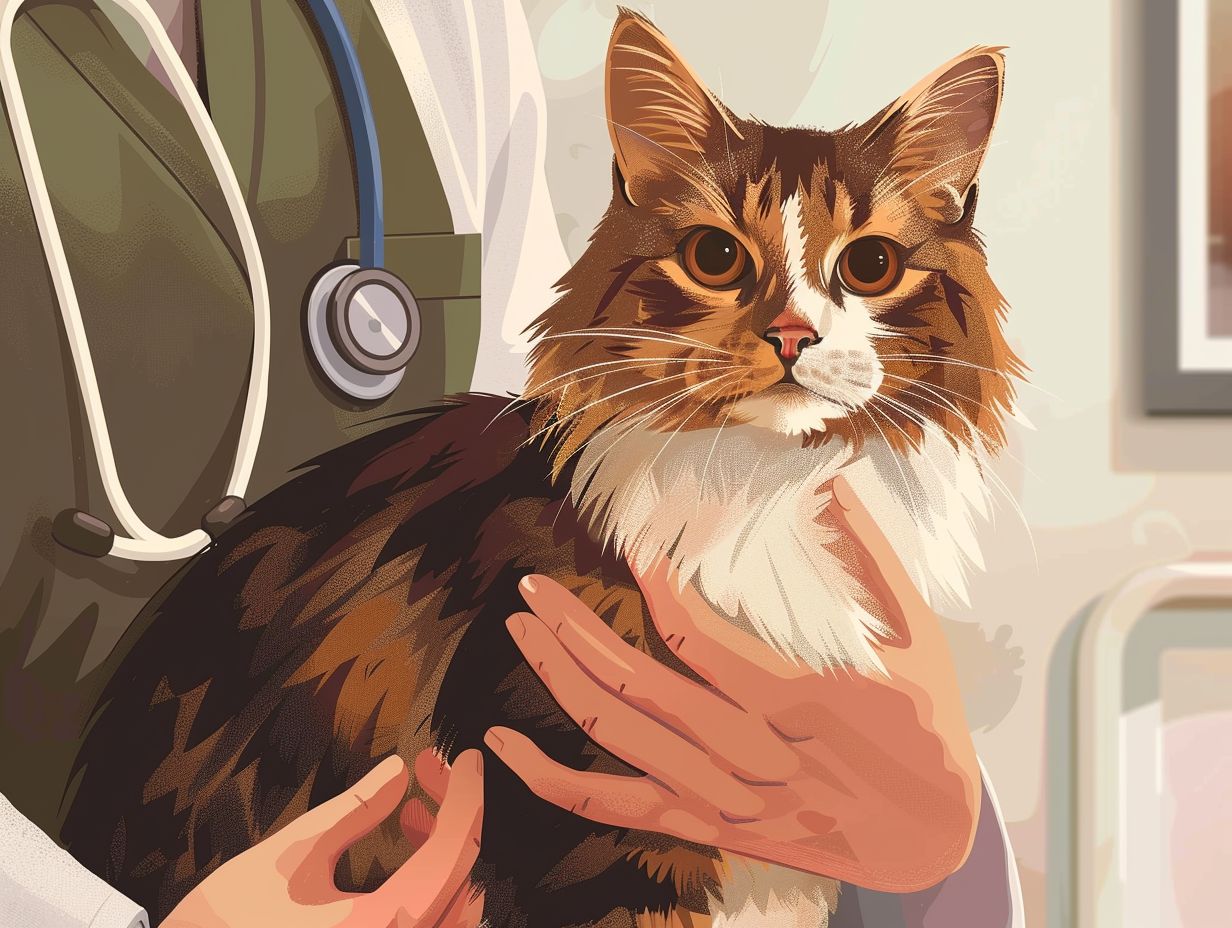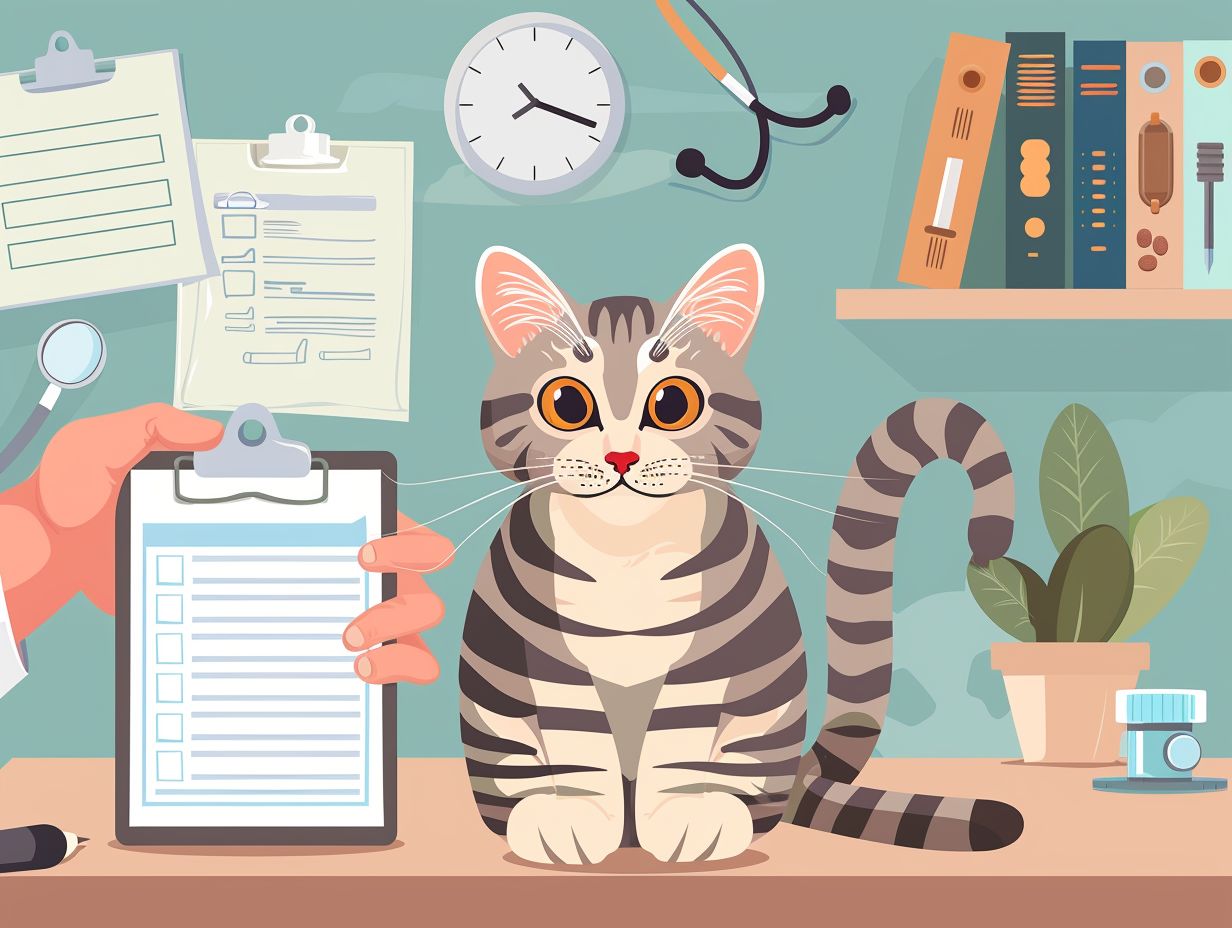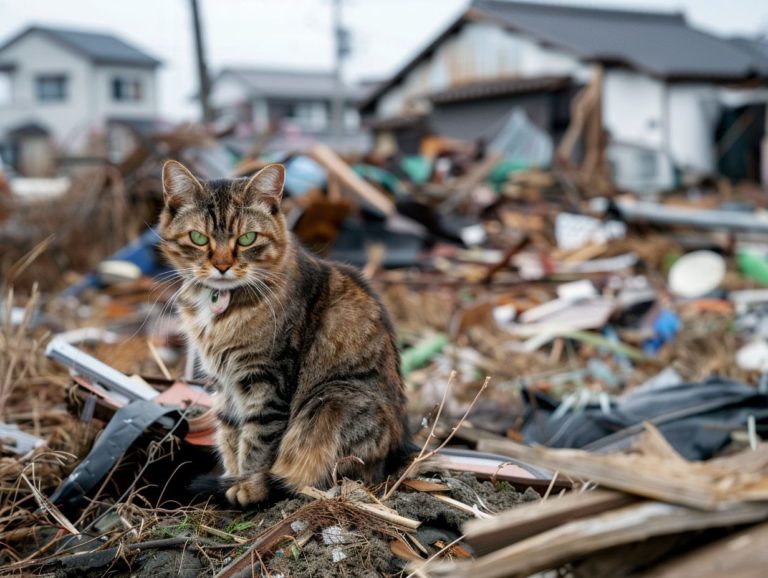Choosing The Best Health Plan For Your Cat What To Know
Choosing the best health plan for a cat is crucial for cat owners. This article offers a comprehensive guide to assist you in selecting the optimal health plan for your cat. It includes understanding your cat’s healthcare needs, choosing the appropriate health plan, exploring the types of plans available, considering budget constraints, implementing cost-saving strategies, and identifying key questions to ask before enrolling.
Key Takeaways:

Understanding Your Cat’s Healthcare Needs
It is essential to understand your cat’s healthcare needs in order to maintain its health and ensure longevity. All animals, including cats, require medical care to address any accidents, illnesses, and general health needs that may arise.
Regular veterinary check-ups are important for monitoring your cat’s health and detecting any issues early on. Preventive care such as vaccinations, dental cleanings, and parasite control is crucial for the overall health and well-being of cats.
Pet insurance can offer financial assistance for unexpected accidents or illnesses. Wellness plans for cats provide comprehensive coverage, including routine check-ups and preventive care. Understanding your insurance plan’s reimbursement policies can assist in decision-making during emergencies.
Factors to Consider for Your Cat’s Health
When considering the health of cats, factors to take into account include age, existing medical conditions, and the likelihood of accidents or other medical emergencies. Key considerations for cat health include the choice of pet insurance, the quality of veterinary care, and the availability of emergency veterinary services.
Aging cats require specialized care for mobility, weight management, and joint health. Dental care is essential for preventing dental diseases that can impact overall health in cats, beyond just fresh breath. A reliable pet insurance policy that covers accidents can provide peace of mind during emergencies, but it’s important to carefully assess premium costs and reimbursement policies to ensure the cat receives optimal and comprehensive care.
Types of Health Plans for Cats
There are various types of cat health plans available to help pet owners protect their cats’ health, including comprehensive pet insurance policies and specialized wellness plans. These plans offer varying levels of coverage for accidents, illnesses, dental care, and preventive treatments.
Pet insurance provides coverage for unforeseen emergencies, surgeries, and long-term medical conditions, ensuring that your cat receives necessary care without requiring you to pay a large sum upfront. On the other hand, wellness plans focus on preventive care and typically cover routine check-ups, vaccinations, and flea prevention.
Understanding the differences in coverage between these plans is essential for determining the best option for your cat’s health needs. Factors such as waiting periods, exclusions for pre-existing conditions, and premium costs all play a significant role in choosing the most suitable plan to keep your cat healthy and happy.
Insurance vs. Wellness Plans

When deciding between insurance and wellness plans for cats, it is important to recognize the differences in coverage and benefits. Pet insurance primarily focuses on reimbursing veterinary expenses for accidents and illnesses, offering financial assistance for unexpected situations. Learn how to budget for a cat health plan.
On the other hand, wellness plans prioritize preventive care services and routine check-ups to maintain the overall health of your cat. Pet insurance covers emergency veterinary expenses resulting from accidents, injuries, or sudden illnesses, providing reassurance in times of need.
Wellness plans, however, emphasize proactive care such as vaccinations, flea prevention, and dental cleanings to prevent illnesses and maintain your cat’s well-being. By understanding your cat’s specific needs and considering your budget, you can determine which option is the most suitable for you.
Choosing the Right Plan for Your Cat
Determining the appropriate healthcare plan for your cat involves conducting a thorough evaluation of your cat’s individual healthcare requirements and the financial limitations of the pet owner. It is essential to assess your cat’s health needs and budget constraints to assist in selecting an insurance or wellness plan that offers sufficient coverage and aligns with your pet’s specific wellness needs.
By examining your cat’s specific healthcare needs, you can ascertain the necessary level of coverage, whether it involves routine check-ups, vaccinations, spaying/neutering, or potential emergency care and hospitalization. This evaluation is critical to ensure that the insurance or wellness plan chosen caters to your cat’s existing health conditions and predispositions.
Additionally, analyzing the premium costs and reimbursement policies of various plans will enable you to make an informed decision that provides peace of mind and financial security for your cat.
Assessing Your Cat’s Specific Needs
To determine the specific healthcare needs of your cat, factors such as the cat’s age, preexisting medical conditions, and the likelihood of accidental injuries must be taken into consideration. This evaluation will assist cat owners in selecting pet insurance plans that align with their cat’s unique requirements.
For senior cats, preventive treatments and more frequent visits to the veterinarian become increasingly important to address age-related health conditions and maintain a good quality of life. Maintaining a dedicated emergency fund or having pet insurance with low waiting periods ensures that cat owners can afford emergency treatments when needed.
Understanding the coverage for dental care and being familiar with policy conditions such as exclusions, limitations, and pre-existing condition clauses are essential to ensure comprehensive support for your cat’s health.
Budget Considerations
When selecting a healthcare plan for your cat, budget considerations play a crucial role. These considerations encompass the premium costs, coverage limits, and reimbursement policies, all of which impact the affordability and adequacy of financial support for your cat’s healthcare requirements.
It is essential to comprehend the total cost of a healthcare plan to make an informed decision. This involves evaluating the monthly premiums, potential out-of-pocket expenses, and annual deductibles to ensure that the chosen plan is not only affordable on a monthly basis but also sustainable in the long term.
Understanding coverage exclusions, such as those for pre-existing conditions and specific treatments, is vital to avoid unexpected costs post-plan selection. Additionally, being aware of claim processing procedures and reimbursement rates is key in assessing the cost-effectiveness and efficiency of an insurance plan for both you and your cat’s healthcare needs.
Tips for Managing Your Cat’s Healthcare Costs

Effectively managing your cat’s healthcare costs involves implementing preventive care strategies and cost-saving measures without compromising the quality of medical care your cat receives. These approaches ensure proactive medical attention for your cat and aim to maintain your pet’s health for as long as possible.
Regular veterinary check-ups assist in early detection of underlying health issues, potentially preventing the need for expensive treatments in the future. Providing a healthy diet and maintaining an optimal weight for your cat helps prevent obesity-related health problems that can lead to costly medical interventions.
Feeding high-quality cat food and promoting regular exercise contribute to overall health and well-being, reducing the risk of expensive medical complications. By tending to your cat’s needs and adopting these cost-effective practices, you can ensure a happy and healthy life for your beloved pet.
Preventive Care and Cost-Saving Strategies
Implementing preventive care measures and cost-saving strategies can help reduce your cat’s medical expenses while maintaining its optimal health. These proactive steps not only lower health risks but also aid in managing the financial aspects of your cat’s medical needs.
Regular veterinary check-ups for cats play a crucial role in early disease detection and enable preventive measures to prevent conditions from worsening. Acquiring nutritional knowledge can also contribute to cost reduction by ensuring that your cat’s specific dietary requirements are met, thereby reducing the likelihood of illnesses.
Additionally, investing in options like pet insurance can offer financial protection against unforeseen medical emergencies. Reimbursement and wellness plan incentives provided by pet insurance can significantly contribute to your cat’s well-being without the financial burden of high costs.
Questions to Ask Before Enrolling in a Health Plan
Before enrolling your cat in a health plan, it is crucial to ask the following 5 important questions. The answers to these questions will assist you in determining whether the plan aligns with your cat’s healthcare needs and desired services. Inquiring about coverage details, policy exclusions, and claims procedures will enable you to make an informed decision about your cat’s medical insurance.
Specifically, it is essential to ask about the emergency care provisions included in the policy to ensure that your cat is covered for prompt care during medical emergencies. Understanding the deductible considerations and how they apply to various veterinary services is important for effectively budgeting for your cat’s necessary medical treatments.
Additionally, inquiring about any wellness plan benefits included in the health plan can help in supporting your cat’s overall health and preventive care.
Key Inquiries to Make with Providers
When seeking clarification from healthcare providers for your cat, important questions to ask include inquiries about the scope of coverage, reimbursement procedures, and emergency care policies. Understanding a policy’s terms, exclusions, and waiting periods is crucial for effectively selecting a health plan for your cat.
Essential questions to ask pertain to the specific coverage for accidents, illnesses, and preventive care such as vaccinations and check-up visits. Additionally, inquire about how and when to submit claims and the timelines for reimbursement. Discussing limitations of the policy, such as pre-existing conditions, and any exclusions based on breed can help determine the policy’s comprehensiveness.
Asking about the potential for premium increases based on your cat’s health status or age can provide insight into the long-term affordability and value of the insurance or wellness plan.
Frequently Asked Questions

What factors should I consider when choosing a health plan for my cat?
Some important factors to consider are your cat’s age, breed, and overall health, as well as your budget and coverage options offered by different plans.
What is the difference between a wellness plan and an insurance plan for cats?
A wellness plan typically covers routine check-ups, vaccinations, and preventive care, while an insurance plan covers unexpected illnesses or accidents. Wellness plans are usually more affordable, but may not provide as much coverage as insurance plans.
Can I add my cat to my existing health insurance plan?
No, cats are not eligible to be added to human health insurance plans. You will need to purchase a separate health plan specifically designed for cats.
What is the average cost of a health plan for a cat?
The cost of a health plan for a cat can vary greatly depending on factors such as their age, breed, and overall health, as well as the coverage options you choose. On average, you can expect to pay anywhere from $20 to $60 per month for a health plan for your cat.
Do all health plans for cats cover pre-existing conditions?
No, not all health plans cover pre-existing conditions. It’s important to carefully review the coverage options and limitations of any plan you are considering to ensure your cat’s pre-existing conditions will be covered.
What should I do if I am not satisfied with my cat’s health plan?
If you are not satisfied with your cat’s health plan, you can speak to your provider about your concerns and potentially switch to a different plan. It’s important to regularly assess your cat’s health needs and make sure their plan is providing adequate coverage.


